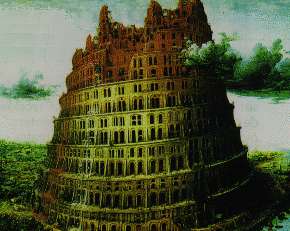If you’re seeing this post a little bit late, it’s probably because of my proximity to a gravitational anomaly, which has slowed time for me, while time runs faster for you.

I saw Interstellar the weekend before Thanksgiving. It was a beautiful cinematic excursion into the cosmos, set in a fascinating near future. It was hard sci-fi, which to the best of its ability, wove current ideas of physics into an intriguing plot carried by vibrant, realistic characters. (In other words, I recommend it.)
Going into the movie, however, I could already guess the theme: we as humans are masters of our own destiny. Humanity will continue to better itself through evolution, and is the ultimate source of meaning in the universe. I was right. It was a story driven by humanism.
How did I see that coming? Well, it was a hard sci-fi space epic. In today’s world, scientific progress, space exploration, and stories about them, are equated with a humanistic worldview.
The modern era has seen reality split in two. There is the sacred reality- religion, morality, and the like- and the secular reality- things like science, and discovery. The church was kicked into the sacred reality box, and has frankly been quite content to stay there.
Humanistic scientists, however, have not held up their end of the deal. They are looking out into the universe for answers to the big questions of life. They are not staying in their secular box. That’s because reality doesn’t come in two separate pieces. Truth is truth.
Take, for example, the Rosetta project, which recently landed a small probe called Philae on the surface of a moving comet called Churyumov-Gerasimenko. The multinational group of scientists who sent out Rosetta are hoping to find data concerning their hypothesis that all life on earth was seeded by a comet.

People aren’t researching, experimenting, and exploring just to crunch numbers, or use tax dollars. They want answers about the meaning of life.
Why should we as Christians care? We already know the ultimate answer. And that is exactly why we should care. I have a twofold reason for this answer.
First, we know from Romans 1 that there are things that can be learned about God from His creation. “For since the creation of the world His invisible attributes are clearly seen, being understood by the things that are made, even His eternal power and Godhead, so that they are without excuse.” (Romans 1:20)
When we look into the sky, or into an atom, we can learn more about our smallness, and God’s greatness. We can get a glimpse into the magnitude of Christ’s sacrifice for us by seeing His handiwork in a subatomic particle, or a supernova.
Secondly, we should care about the exploration of the world around us, because people who don’t know God are looking there for meaning and purpose. When we get involved, we can show the world that the answers they are looking for are found in the creator of everything!

So, let’s unabashedly pursue the knowledge of God through every avenue in which He reveals Himself. Let’s look forward to the findings of the Orion Mars missions, because our God is great, and He made Mars! Let’s speculate about the what-ifs in story and art, because our God is vast, and glorious, and mysterious. Let’s turn the tables so that society stops assuming that every space movie is a hot mess of humanism, and every comet lander is looking for our amino acid ancestors.
Most of all, let us look to the heavens, and fall down and worship our king. Let us humble ourselves as King David did, when he wrote: “When I consider Your heavens, the work of Your fingers, The moon and the stars, which You have ordained,what is man that You are mindful of him, And the son of man that You visit him?” (Psalm 8:3-4)
Keep on glowing in the dark,
Elora




